Sound: 









Value: 









(Read about our ratings)
This is one of the stranger products I’ve reviewed for SoundStage! Solo. iFi Audio’s Go Pod ($399, all prices USD) is a pair of Bluetooth receivers and amps designed to attach to high-end wired earphones, converting just about any ’phones with detachable cables into true wireless earbuds. So instead of carrying around a portable amp or device with a headphone jack, you can use your audiophile earphones with any Bluetooth source.
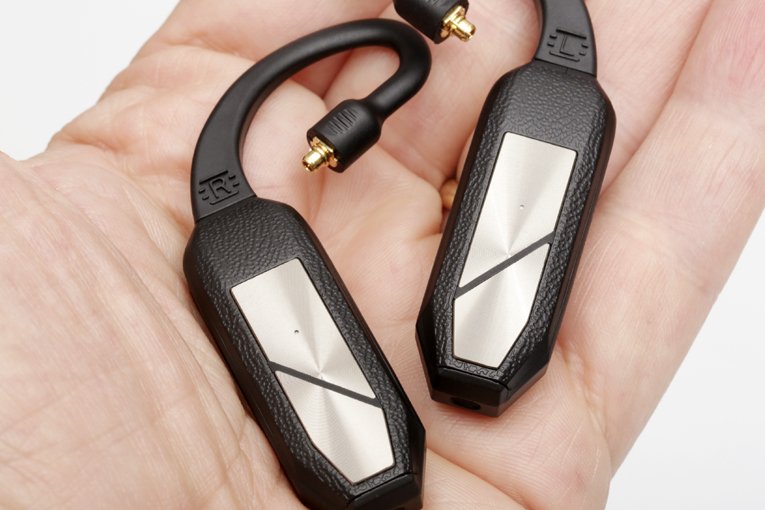
I can see some noses wrinkling at the thought. Isn’t the point of high-end earphones great audio? Isn’t Bluetooth bad? Well, yes and no. The real question is whether the possibility of a slight reduction in sound quality via Bluetooth is worth the significantly increased convenience of going wireless. If you don’t think that’s a worthwhile tradeoff, you might as well stop reading.
For everyone else, including me, this is a brilliant idea, as it dramatically increases the usability of an expensive and niche product. Sometimes I just don’t want to deal with wires. Since this is such a weird product, however, there are lots of ways for the Go Pod to go odd. Let’s have a listen.
In the box
In the box, you get . . . a box. This case is quite the chonker, but it does have little LEDs inside that function like overhead lighting, which is an elegant touch. It’s also large enough to hold most earbuds with the Go Pod dongles still attached. It’s roughly 50 to 75 percent bigger in volume than a deck of cards, so unless you have really big pockets, it’s going to be awkward to carry. Like true wireless earbud cases, it charges the Pods.
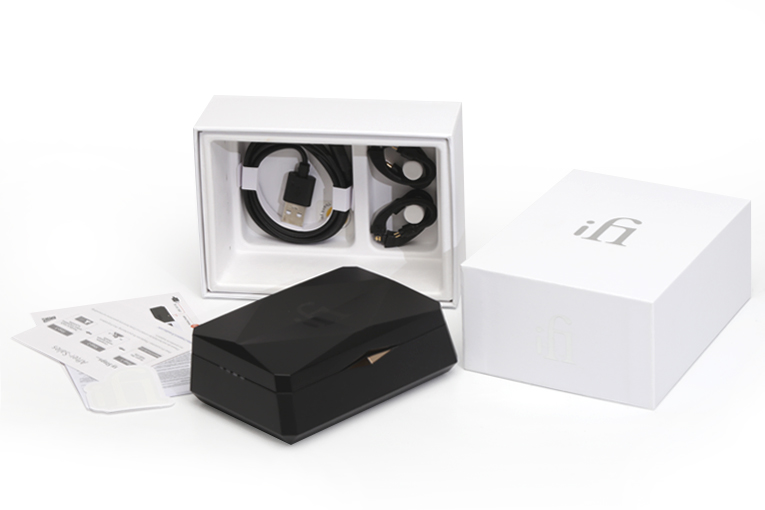
Two different styles of connection cable “ear loops” are included: MMCX and two-pin 0.78mm. These connect the Go Pod bodies to the earbuds, looking like black tails on the boxy bodies of the pods themselves. Pentaconn, T2 and A2DC are available separately, so you should be able to connect to most in-ear monitors with detachable cables. Also in the box is a USB-A-to-USB-C charging cable, along with a handy quick-start index card with the Go Pod’s basic features.
Use
The first step is to remove the cables from your chosen earphones. For this review, I used the Meze Audio Rai Penta earphones. The connecting tail of each Go Pod body just replaces the standard cable. That’s it. Setup done. The result is, admittedly, rather bulky. These are larger than any true wireless earbuds you’ve ever used. The Go Pod bodies sit behind your ears, with the tails looping up and over to connect to the earbuds. Even with my glasses on, they were surprisingly comfortable. While heavy, they’re still significantly lighter than any over-ear headphones. They also felt quite secure, far more so than most true wireless earphones.
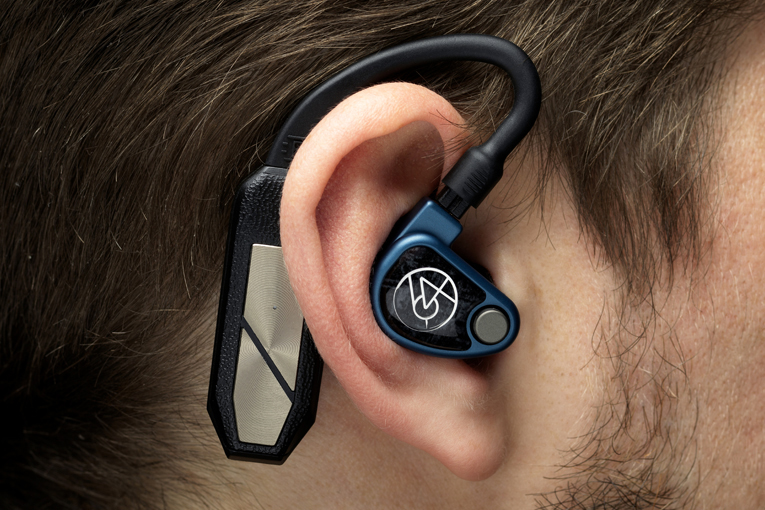
Just working at all would have been enough for such a niche product in my eyes, but they go beyond that with touch panels on the main body. Just as with “real” true wireless earphones, you can pause and skip tracks, adjust volume, take calls, and even activate your phone’s voice assistant. So, yeah, if you’ve ever wanted to have a Zoom meeting with your $1000 IEMs, now you have that option. Just be warned that your boss might second-guess your need for a raise. The Go Pod is even IPX5-rated, so rain is fine. However, you’d better make sure your earphones are also at least IPX5-rated before you venture out into a storm.
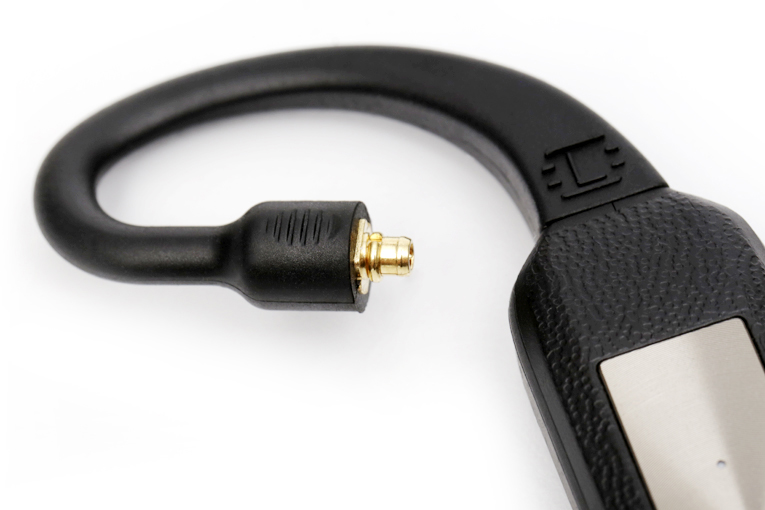
The Go Pod connected easily to my Pixel 7, which for some reason isn’t as much of a given in 2024 as you’d expect. Technically, there is a companion app, but practically, there isn’t. If you’re on Android, the app isn’t available in the Google Play Store. It’s only available as an APK (a program file, essentially) download from iFi’s website. Across all my product testing, I have a hard rule to consider this as not having an Android app. This is because installation of an APK requires disabling security settings on your phone, something I can’t in good conscience ask of my readers. Is it probably fine? Sure, but those security settings exist for a reason and the Play Store exists for a reason. On the iOS side, the app has a 1.4-star rating and some scathing reviews. The “lack” of an app wasn’t a big factor in my overall opinion of the Go Pod.
Sound
Is it possible you might hear a difference between the wired version of your earphones and the wireless version with the Go Pod? Sure, but I’d hesitate to ascribe that difference to Bluetooth, especially when the Go Pod is compatible with LDAC, LHDC/HWA, aptX Adaptive, aptX, and AAC. At higher bit rates, you’d be hard-pressed to tell the difference in blind testing, though there’s no easy way to conduct a blind test with this product. So, as long as you’re not using some ancient Bluetooth source, we’ll call this theoretical reduction a reasonable tradeoff for the portability.
The more likely difference you might hear, or not, is the power of the amp. iFi Audio claims 120mW into 32 ohms. For comparison, iFi’s own Hip-dac2, which I used for the next section of this review, is rated at 400mW into a 32-ohm load. So, roughly speaking, the Hip-dac2 is over three times more powerful. It’s also heavier and bulkier, and it requires a headphone cable.
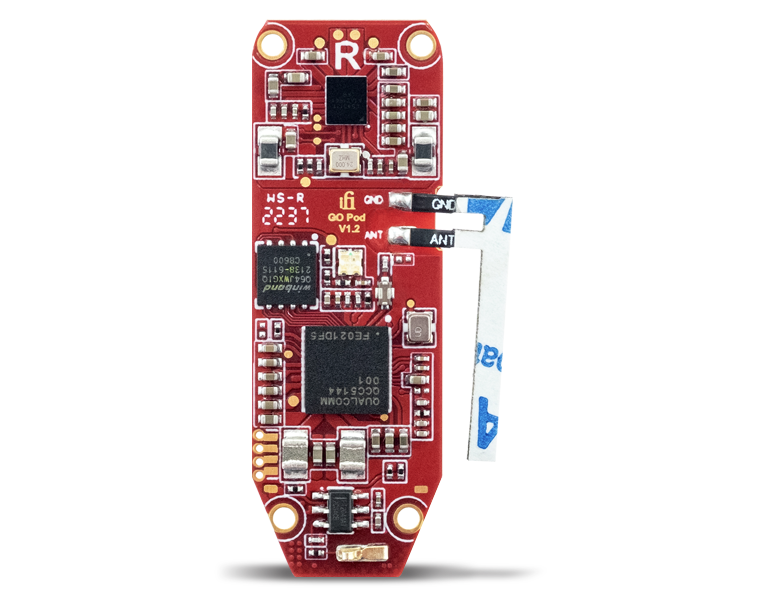
Taking all that into account, the Go Pod sounded fantastic when powering the Rai Pentas. Incredible detail, fast response, controlled bass, and plenty of volume. NTO’s “Nevado Sorata” (Forever Friends, 24-bit/48kHz FLAC, All Night Long / Qobuz) is a great blend of melancholy piano combined with electronic dance beats, as if someone brought a grand piano to a rave. The Go Pod supplied the Rai Pentas with plenty of power, easily driving them to well beyond a comfortable listening volume. Even at higher levels, the sound remained well managed, with precise attacks on the percussion and no slop in the bass.
Comparison
It seemed fairest to compare the Go Pod with an amp that lets your earphones remain portable. iFi Audio’s own Hip-dac2 is one of my favorites and gets lots of use in my reviews (though I’ve started to replace it with the more powerful but less portable Schiit Audio Magni). The Hip-dac2 is about the size of a deck of cards and has its own battery. You connect it, via USB, to a source like a phone or portable media player. This is unquestionably a bulky solution, but it’s manageable if you have big pockets.
I cued up “Slow Motion” from Caroline Shaw’s Rectangles and Circumstance (24/96 FLAC, Nonesuch Records / Qobuz). Hand claps and layered vocals spread across and bounce around the soundstage while syncopated percussion keeps the beat. I was able to get a bit more volume out of the Hip-dac2, but both were capable of levels that were far beyond safe. I suppose there might be some IEMs that require a lot of power, but the Go Pod should have plenty for any reasonable earphones. Maybe the Hip-dac2 sounded a little bigger and more open in the frequencies above Shaw’s voice, but it’d be a stretch to call this difference “subtle.” With no way to volume-match or compare the two blind (since you can easily feel which version is on your ears), I’d characterize any difference in sound quality as “everything else matters more.”
Conclusion
The iFi Audio Go Pod is a peculiar product—exceptionally niche and priced as such. How many people have earphones they love enough to spend an additional $400 to convert them to wireless? Are said earphones (plus $400) really that much better than the many sub-$400 true wireless earphones readily available on the market?
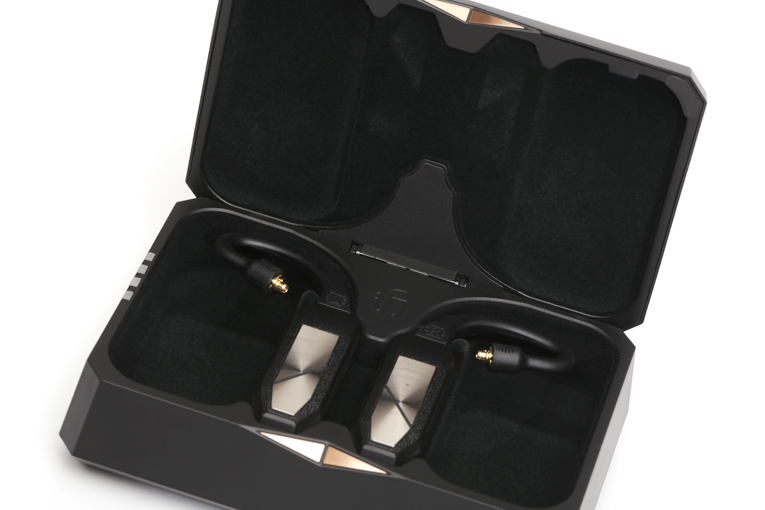
Honestly, the answer is yeah, sometimes. The reason I used the Rai Pentas in this review was that they’re quite expensive and sound incredible (Brent Butterworth rated their sound at 9.5/10, and I agree). Connected to the Go Pod, they’re essentially a $1500 pair of huge true wireless earphones that lack noise canceling or (for practical purposes) an app. They sound amazing, and with the Go Pod, I can walk around my house listening to them untethered and unbothered. Their passive noise reduction is such that all I hear is the music. Are they over five times better than my go-to Sony WF-1000XM4 earphones? No, but with both on my desk, I’m always going to reach for the Rai Penta / Go Pod combination first, unless I specifically want noise canceling.
For someone who has found a pair of forever earphones, I can see the Go Pod as a great way to broaden their usefulness. There are times when having a headphone cable is an annoyance. You could theoretically get a little better sound wired with a bigger amp, but that difference is smaller than you might expect—so small that it’s definitely worth the tradeoff in portability in any situation where convenience is a priority.
. . . Geoffrey Morrison
Associated Equipment
- Smartphone: Google Pixel 7.
- Amplifier: iFi Audio Hip-dac2.
- PC: iBuyPower Windows 10.
- Earphones: Meze Audio Rai Penta.
iFi Audio Go Pod Bluetooth DAC–Headphone Amplifier
Price: $399.
Warranty: One year, parts and labor.
iFi Audio
139 Cambridge Road
Southport PR9 7LN
England, UK
Phone: +44(0) 1704-227-204
Website: www.ifi-audio.com
US distributor:
iFi Audio USA
1211 Park Ave, Suite 102
San Jose, CA 95126
Phone: 1-800-799-4342
Website: www.ifi-audio.com
Canadian distributor:
Erikson Consumer—An Exertis | JAM business
Baie-D’Urfé, Quebec H9X 4B7
Phone: 1-800-567-3275
Website: www.eriksonconsumer.com




